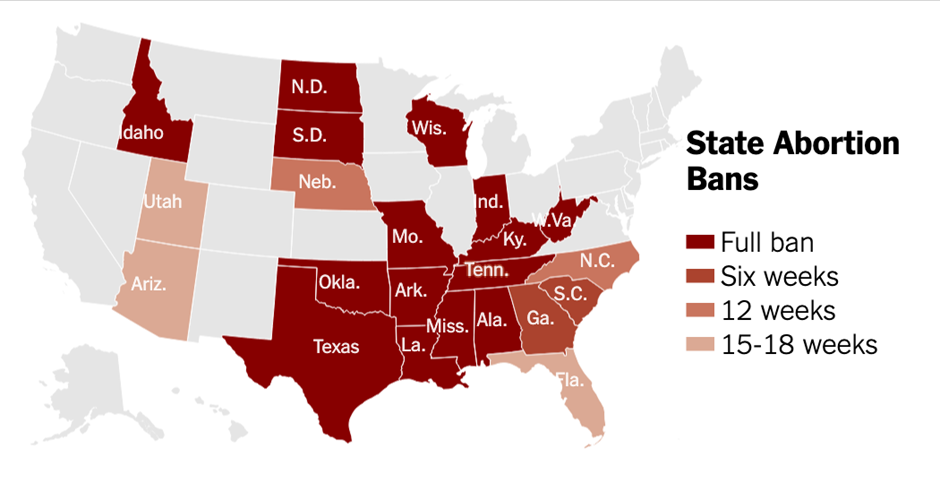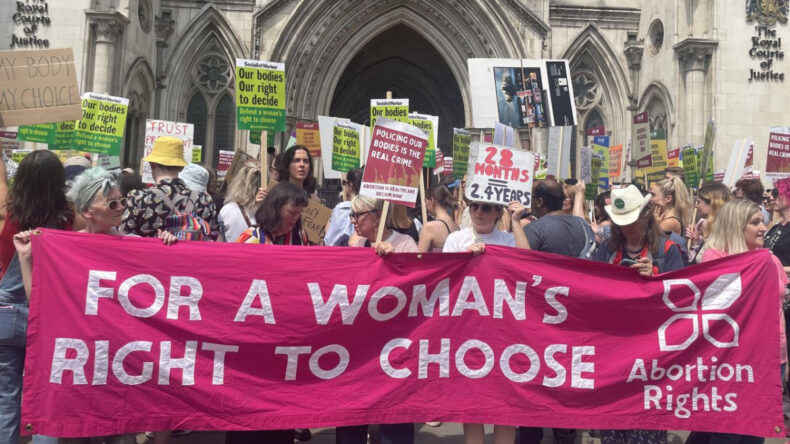The ruling of the Supreme Court in the case of Dobbs v. Jackson Women’s Health Organization, which effectively eliminated the constitutional guarantee to access abortion.
Twenty-two states in U.S. ban abortion or restrict the procedure earlier in pregnancy than the standard set by Roe v. Wade. Roe v. Wade, a landmark ruling that shaped reproductive rights for almost fifty years, was overturned by the Supreme Court in the previous year.

Abortion Bans vs Human Rights in U.S
The right to access safe and legal abortion has long been a topic of intense discussion, reflecting differing societal values, religious beliefs, and ethical considerations. The landmark 1973 Supreme Court decision in Roe v. Wade affirmed a woman’s constitutional right to choose to have an abortion, balancing it against the state’s interest in protecting potential life. However, recent years have witnessed an escalation of efforts to restrict and even eliminate this right through a series of legislative measures.
Proponents of these abortion bans often cite concerns about the sanctity of life, seeking to protect what they view as the rights of the unborn.
Furthermore, the backlash against these bans has been swift and widespread, not only within the United States but also on the global stage. Human rights organizations and activists have expressed concern that these bans infringe upon women’s rights to bodily autonomy and medical privacy. The international community has emphasized that reproductive rights are human rights, and any curtailment of these rights may be seen as a violation of established norms.
The tension between state interests, women’s autonomy, and fetal rights remains unresolved. The broader implications of these abortion bans extend beyond the realm of reproductive health, touching on issues of individual liberty and government interference. Many fear that such bans set a precedent that could be applied to other medical decisions, thereby limiting the rights of individuals to make choices about their own bodies and healthcare.
The outcome of these debates will undoubtedly shape the future of reproductive rights, human rights, and the broader socio-political landscape of the nation.













